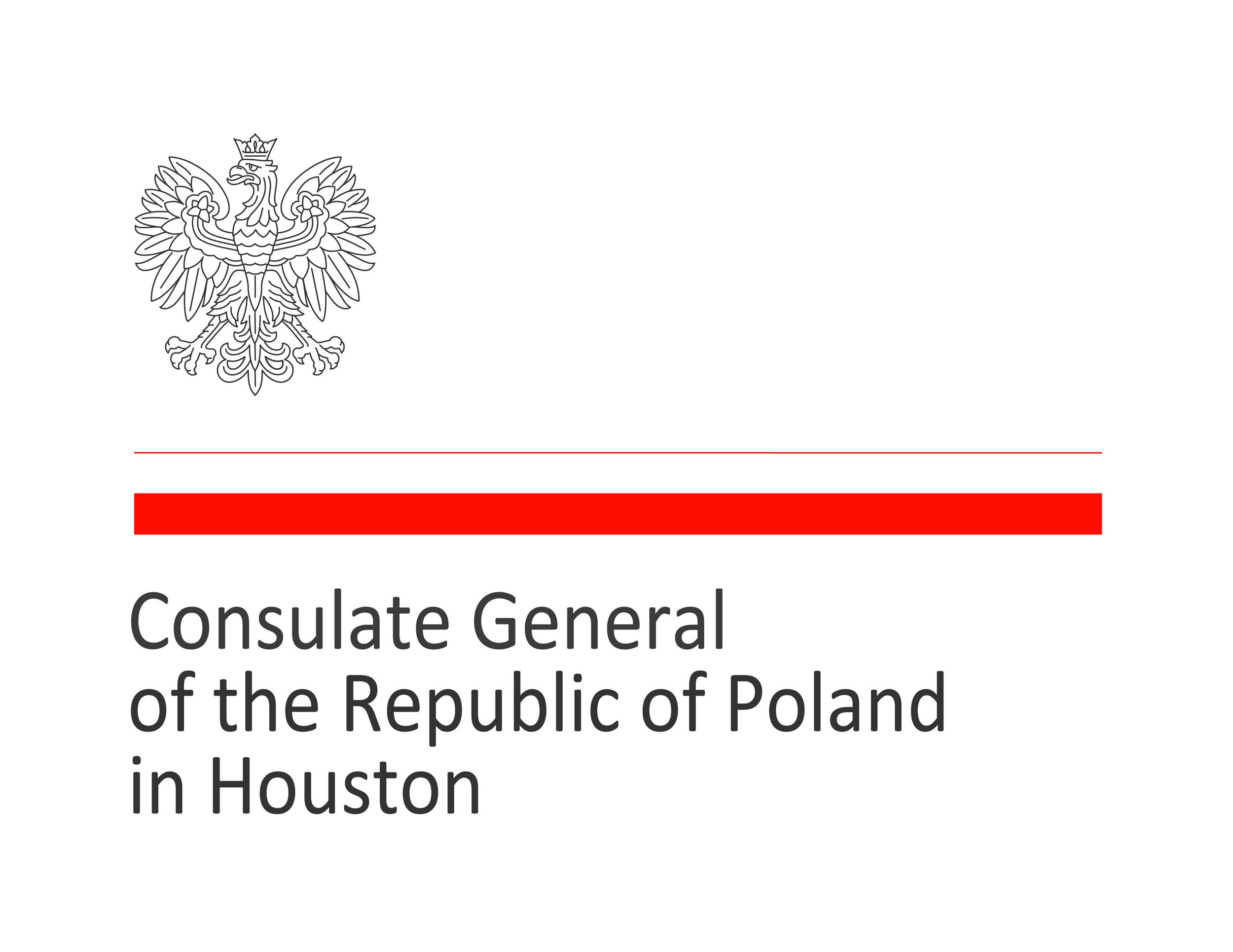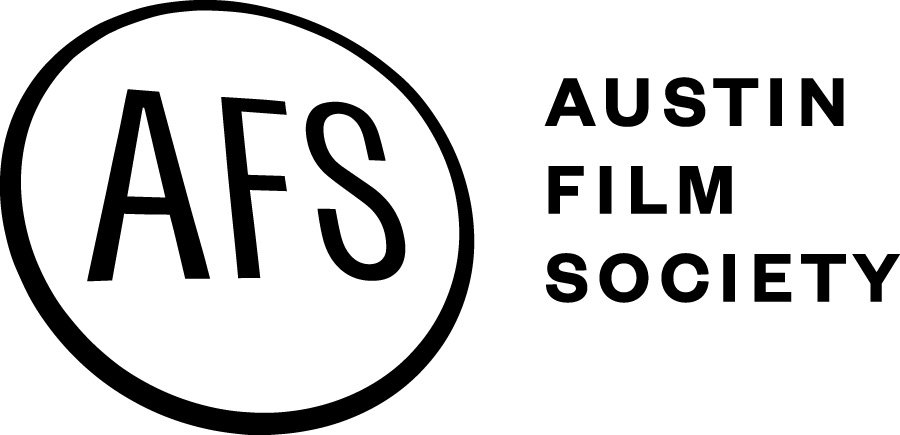Interview with film critic, Mariola Wiktor, about the APFF 2019 program
/Conducted in Polish by Joanna Sokolowska-Gwizdka | Translated to English by Anna Boyet.
Journalistic responsibility and women in Polish cinema
as the two key themes of this year’s Austin Polish Film Festival
(For the original version in Polish click HERE.)
Joanna Sokołowska-Gwizdka: You graduated from the University of Łódź with a degree in Polish, and you also pursued theater studies. When did you first get interested in film?
Mariola Wiktor: When I was in high school. I went to a film festival, and I saw movies that were completely new to me, made in the furthest corners of the world. I immediately craved more, and I wanted to talk about them. So I joined film societies to do just that. And then I enrolled in the Academy of World Cinema. So even though I went on to study Polish and theater studies, cinema was always there with me. I delved into Polish films and adaptations of Polish literature. The turning point came in 1994, when I worked in Chicago as an intern at Polvision, a Polish TV station. I learned all the insider secrets of that new medium. Up until that point, I was a theater and film journalist. At Polvision, I developed, produced, and hosted a weekly culture show called Kram z Muzami [The Muse Stall]. I discovered the power of an image, and realized it could communicate so much more than a written word. When I returned to Poland, I collaborated on student films at the Łódź Film School, and worked on documentaries. I signed up for the Dragon Forum workshop, and learned how to pitch documentary projects. And I started going to film festivals - first in Poland, and then to Cannes, Berlin, Karlovy Vary, Venice. I was writing about movies again (press reports, interviews). I joined FIPRESCI, became a festival jury member, and a panel speaker; I hosted meetings, workshops, and was a guest speaker at Wajda’s School. This life swallowed me whole, and it’s been like that for over twenty years.
JSG: For many years you organized film festivals in the UK and the Cinergia Festival in Łódź. Tell me about it.
MW: I dove into the deep end with my first ever festival, the 3rd Polish Film Festival in London organized under the auspices of the Polish Culture Institute in 2004/2005. I took it over from Monika Braid, an excellent Polish producer who works in the UK, who was in charge of the programming, and generously agreed to help out a novice like me. It wasn’t easy but I think that’s when I caught the festival bug. Polish cinema was represented across the board (shorts, documentaries, animations, feature films, several generations of film makers) with screenings, primarily for the British audience, at such iconic venues as the Riverside Studio, Soho Myfair, Serpentine Gallery or Barbican. It was a great joy to sell out Polish film screenings there. So when years later Sławek Fijałkowski, who was in charge of the Charlie cinema in Łódź, asked me to come up with a new formula for an existing film festival that would promote top Polish and European films, I jumped at the offer. My eagerness to take on the challenge had a lot to do with a sense of journalistic dissatisfaction that I was struggling with at the time. Film criticism wasn’t high on the priority list at the daily paper I was working for. I felt that developing a series of Cinergia European Cinema Forums (2009-2015), and being able to custom tailor it (I acted as the program and artistic director of Cinergia for seven years) would open up a world of opportunity for me to promote quality cinema. And I would take on a greater responsibility, as well. It was an adventure, facing up to completely new forms of film criticism or journalism, and reaching the audience. We didn’t have much of a budget so our programming had to be very carefully curated. The lineup for each event, which usually included 80-90 movies, with a record high of 200 movies, was never accidental, and individual sections (about 10 or 11) were put together so as to interact with, complement, or confront one another. Because of my wide network of international contacts I was also able to bring to Łódź such icons of European cinema as Marta Meszaros, Otar Josseliani, Peter Greenaway, Andriej Konczalowski, Tinto Brass, Istvan Sabo, and many others.
JSG: How does Polish film stack up against the European or global trends?
MW: Polish cinema is gaining recognition and appreciation in festival circles. Some time ago we watched with jealousy the successful rise of the Romanian or Greek new wave, and now I believe it’s the Polish cinema that stirs up interest worldwide, and it’s no longer just the works of Krzysztof Kieślowski, Andrzej Wajda, Krzysztof Zanussi or Jerzy Skolimowski that are recognizable. This is a direct result of professionalization of the film industry (the rise of young, creative producers with an extensive international network of contacts who get involved in developments, workshops, and various programs; the support of the Polish Film Institute; and the activities of regional film funds), as well as the effect of Ida and recently Cold War by Paweł Pawlikowski. Polish films not only compete in the most prestigious categories at top festivals but they also rake in awards. Looking only at 2018, Mug directed by Małgorzata Szumowska won the Jury Grand Prix – a Silver Bear at the Berlin Festival. In Cannes, where Paweł Pawlikowski took the best director award for Cold War, Agnieszka Smoczyńska’s Fugue had its world premiere. And now let’s take a look at the lineup of this year’s Polish Film Festival in Austin: Agnieszka Holland’s latest Mr. Jones that opened at this year’s Berlinale; Another Day of Life screened at Cannes and won the Best Animated Feature prize awarded by the European Film Academy; Nina – Olga Chajdas’s directorial feature film debut took home awards in Rotterdam and Karlskrone; and Adrian Panek’s Werewolf won the Ecumenical Jury Award and the Audience Award at the Tallin Black Nights Festival in Tallin.
The Austin festival audience will also have a chance to see Krystyna Janda in her award-winning role in Jacek Borcuch’s Dolce Fine Giornata (Best Actress Award at the 2019 Sundance Film Festival). And last but not least, there is Jan Komasa’s Corpus Christi – the winner of this year’s Europa Cinemas Label in Venice, and Poland’s 2020 Oscars submission. All those films are universal and original at the same time, free of burdens of the past; it’s cinema with modern storytelling, appealing and intriguing to a viewer anywhere in the world.
JSG: This year’s Austin Polish Film Festival will open with the Gdynia’s Golden Lions winner Mr. Jones directed by Agnieszka Holland. This is top world cinema with a historical perspective that tackles the issue of the limits of political power, and the ethics and responsibility of journalists. The movie follows the real life pre-war British journalist Gareth Jones as he uncovers the Great Ukrainian Famine orchestrated by Stalin. What’s your take on the movie?
MW: Even though Agnieszka Holland’s Mr. Jones is inspired by historical events of the 1930s, it’s just as relevant today. It evokes the Great Famine in Ukraine, and uncovers yet another blank spot in history, shamefully ignored for years not only by the Stalin regime and the subsequent Soviet governments but also by Western European politicians, intellectuals, and journalists who chose to keep the uncomfortable truth under wraps. They did that because they were naive, conformist, self-serving, comfortable, cynical, or reluctant to take risk. Agnieszka Holland holds up the mirror of her film to the media-manipulated world we live in, right here and right now. Analogies drawn from the past sound like warnings. If the media is no longer free, independent from political allegiances, critical toward reality, relentless and tenacious in its search for the truth, we are condemned to propaganda and a fake view of the world, and tragedies such as the Ukrainian famine are likely to happen again because those who provoke them will be able to act with impunity, and the victims will suffer in vain as their suffering will not become a part of the collective memory, will not be recorded in the experience of tragedy passed on from generation to generation. The movie is also significant because it argues with an eternal belief that an individual cannot change the world. Gareth Jones proves that it’s possible even though for him it comes at the highest price.
JSG: Another movie raising the question of journalistic responsibility is Damian Nenow’s Another Day of Life based on the book by Ryszard Kapuściński.
MW: The movie, which will also be screened at the Austin Polish Film Festival, focuses on the issue of a journalist’s ethics and responsibility for shaping reality, and our exploration of that reality. It’s another example of a movie about things that do not exist unless they are given a name, recorded, or photographed. A brilliant hybrid of an animated feature and a documentary by the directing duo of Damian Nenow and Raul de la Fuente, Another Day of Life is a daring adaptation of a book by Ryszard Kapuściński with the same title, written after the Polish reporter’s trip to Angola in 1975 to the source of a bloody civil war that broke out after Angola regained its independence. It was then that Kapuściński the reporter morphed into Kapuściński the writer. The role of a note-scribbling journalist, a passive observer of events, proved inadequate to carry the enormous weight of pain, suffering, and atrocities that Kapuściński witnessed first hand. It’s not incidental that animation (with its symbolism, and avoidance of the literal) just like a novel (with its non-linear nature and ambiguity of words) can express ambiguous, indescribable, unnamed emotions; it can peek deep into the thoughts of the characters. Such subtleties cannot be conveyed in a documentary or in an AP dispatch. Another Day of Life is not only about the war in Angola but first and foremost about what that war does to people, how it changes their perspective, intensifies their life, and deepens their experiences.
JSG: History also makes an appearance in the animated documentary adaptation of Anna Janko’s book A Minor Genocide. It’s a harrowing account of a Nazi-provoked mass murder of residents in a small village near Lublin. How much do we still need to revisit such themes?
MW: A Minor Genocide directed by Natalia Koryncka-Gruz is not another movie about atrocities of war or an account of a war crime. While the film’s point of departure is the forceful pacification of the Sochy village on June 1, 1943 and the mass murder of civilians, for me its focal point is the inherited trauma. It is about vicarious memories that stem from stories passed down by word of mouth, about fear bred in the bone. And it’s shocking how deep the traumatic experiences of our ancestors linger within us, and how far they echo through the generations. That is the realization we take away from the movie, and in that sense it’s relevant, necessary, and meaningful. Yet again, it’s not incidental that the movie marries elements of drama and documentary to depict extreme boundary situations experienced by anyone who has gone through hell. I am just not sure if the obviously borrowed (from Teodore Adorno, Elisabeth de Fontenay, J.M. Coetzee, or Joon-ho Bong’s movie Okja screened at Cannes) controversial comparison of the Holocaust to industrial animal slaughter that makes an appearance in A Minor Genocide is not misused. I understand that the intent behind resorting to such shock therapy is to back up the pacifist message of the movie, its call for compassion, sensitivity, for empathy toward everything that lives and feels, and for the rejection of killing. The director seems to imply that our insensitivity to the fate of animals has a lot in common with indifference to people’s death in camps. And if she is right, if there is no other way to break through the shell of a viewer’s inertia, then how badly overwrought and desensitized is the world we live in?
JSG: This year’s Austin film festival will show one more movie that addresses the topic of the media and its responsibility for creating reality. Paweł Borowski’s I Am Lying Now mocks America’s beloved TV shows. The underlying message of this retro futuristic metaphysical thriller is to bring to light the line between fact and fiction in our world. Do you agree?
MW: I Am Lying Now is a film about voyeurism, about cinema as fiction, about obsession with the consumption of media-generated information. The actors and the singer in Borowski’s reality show sell their privacy, they want to be watched because more popularity means more money. I Am Lying Now invites viewers to reflect on modern life and the mass media. The movie clearly points to the blurring lines between truth and fiction. It shows how eager we are to rely on scraps of information taken out of various, very often radically different contexts; contexts that we sometimes create ourselves. The only thing that matters is what people want to believe in. In that sense, the movie is also about manipulation that’s not necessarily imposed. Borowski shows an unnerving ease with which we succumb to this fictional reality. We are addicted to it because fiction is more interesting and colorful than ordinary life. And it’s not a revelation, it’s a cliché, but the film defends itself by being visually commanding. It shows an alternative reality that does not exist, so it’s fictional but sort of credible at the same time.
JSG: The 2019 Austin Film Festival will show a number of Polish films made by women, about women’s issues. The lineup includes Playing Hard by Kinga Dębska, 53 Wars by Ewa Bukowska with a spectacular role of Magdalena Popławska, Back Home by Magdalena Łazarkiewicz, Nina directed by Olga Chajdas, or Dolce Fine Giornata starring Krystyna Janda. What do female creators of Polish cinema have in common?
MW: For the Polish female directors of the movies that will be shown in Austin, one common denominator would certainly be their attempt to depict a new female protagonist. A woman who is strong, charismatic, courageous, stereotype defying, who was traditionally overshadowed by a man, and now has finally been noticed by Polish filmmakers. The films that particularly stand out in this context are Olga Chajdas’s Nina and Ewa Bukowska’s 53 Wars. I would definitely throw Jacek Burcuch’s Dolcie Fine Giornata in there as well – a man’s movie about an unconventional woman. It’s the first time such stories and main characters take center stage in Polish movies. And all offer brilliant performances by Julia Kijowska, Magdalena Popławska, and Krystyna Janda. The main character of Nina (Julia Kijowska) is a complete antithesis of the stereotypical Polish self-sacrificing exemplary wife and mother - a self-assured woman who follows her own instincts, needs, and desires, discovers her own sexuality, and is not afraid to be herself. Anna (Magdalena Popławska) in 53 Wars suffers from PTSD. The wife of a war correspondent, teetering on the brink of insanity, she cannot cope with living in constant uncertainty, waiting for a call from her husband who puts his life at risk and neglects his suffering family. And last but not least – the excellent performance of Krystyna Janda as Maria Linde in Dolcie Fine Giornata. Janda’s character is a liberated woman, a respected Noble prize winner, a Polish writer, a European intellectual living a quiet life in Tuscany, who does and says whatever she wants, and lives however she likes. She breaks the stereotypes of age, race, and political correctness, and has to bear the painful consequences of her actions, but at least she lives her life to the fullest, does not shy from reflection, and makes her own choices.
JSG: And last but definitely not least – we have to mention the intimate and unpretentious Corpus Christi by Jan Komasa, showered with awards in Venice and Gdynia, where the director got a standing ovation, and the audience would not let him off the stage. Corpus Christi is Poland’s submission to the Oscars. Why is this movie so powerful?
MW: There is a universal appeal to Jan Komasa’s Corpus Christi. The film touches on a subject matter that a lot of people, particularly young people all over the world can identify with. Namely, it looks into the need to belong to a community, and a need for spirituality. Both of these are very hard to come by in today’s materialistic humdrum world that’s almost completely devoid of authority. Bartosz Bielenia gives a virtuoso performance as Daniel - a marginalized outcast who after serving his sentence at a juvenile prison starts impersonating a priest, and becomes an important member of a parish community. Because of his inherent empathy he knows how to interact with parishioners, how to bring people together to do good, how to forgive, and how to accept. The film screened at the top festivals all over the world, including Venice and Toronto, and it has been lauded as an important, meaningful work of art that embraces modern society’s search for spirituality while distancing itself from phony faith and institutionalized Church. Because for Komasa, religious beliefs are only real when they reject the pretense of ritual and blind faith. It’s a bold, brilliantly sketched therapeutic morality play.



















